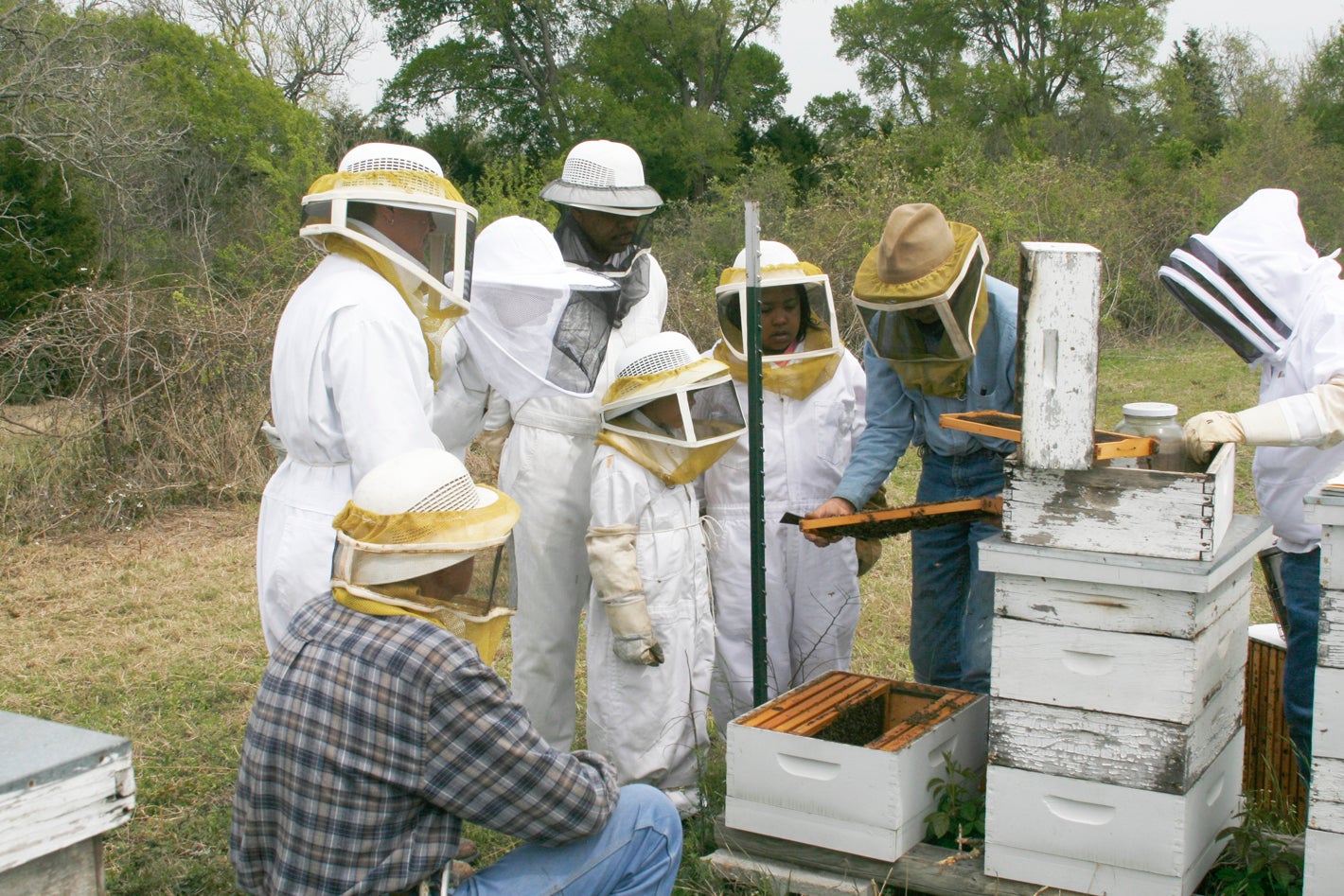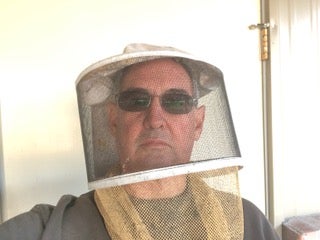Master Beekeeper: The joy of being a beekeeper
Published 12:36 am Wednesday, June 23, 2021

- Families watch as a beekeeper examines a hive, looking for the queen and honey amid the worker bees.
|
Getting your Trinity Audio player ready...
|

Len VanMarion
Certified Texas Master Gardener, TAIS Master Beekeeper,
Texas Beekeepers Association member, Real Texas Honey member
For those of you who have a hive, you know the joys. For those of you whom do not, maybe I can provide a little insight. Honeybee are amazing creatures, their life is wholly dedicated to the hive. A bee will give up their life to defend the hive, because when a bee stings it dies. A bee will do housekeeping duty. A bee will nurse the young bee larva. A bee will go collect nectar or pollen. A bee will raise an others young. A bee will give up its own genetic heritage to raise a queen that is only a ¼ sister. If a beekeeper places a frame of one day old larva into a hive without a queen the hive will raise a new queen from the new larva that are not related at all.
To just watch bees coming and going into a hive is amazing. Some laden with pollen, some with nectar. You can tell they are clearly on a mission. They are intent on their task as each bee understands the entire hive depends on their efforts. Without pollen the young bee larva will starve. Without honey the entire hive will starve in the winter. Without housekeeping the hive floor will fill with litter and become a home for parasites that will kill the hive.
When a beekeeper opens a hive and looks at the brood (area in the hive where eggs, larva, pupa are located) section there is an organization and pattern that tells the beekeeper how strong the hive is. When a keeper sees a full frame of capped pupa or full frame of white larva you know the queen is laying. You know the young housekeeping bees are cleaning and building cells for her to lay in. You know the nurse bees are caring for the young. You know the hive is strong and growing. When you see large sections of nectar and/or honey you know the field bees are finding nectar and bringing it home.
A beekeeper acquires a since of affection for the little insects that work so hard. When you see a hive that is not doing well you want to help them. You look for a cause, debris buildup on the bottom, sign of Hive Beatles, Varroa mites or loss of the queen. You feel a duty to try to help them.
Unfortunately, honeybees have a lot working against them even with beekeepers trying to help. There are pest that our bees have no defense against. Hive Beatles from Africa, Varroa mites from Asia, and way to much pesticide and herbicide use. Even the average homeowner is working against the honeybee. How many of us use weed and feed on our yard to kill the wild flowers like white clover and dandy lions? How many of us use systemic insecticides on our rose bushes? How many of us spray insecticides (including mosquito spray) during the day instead of at dusk when the bees are back in their hive?
Beekeepers loose about 45% of their hives every year and must struggle to keep their hive counts. We raise queens to split hives, we search for swarms, we remove hives from places people don’t want them to live. We work hard to keep bees around. Remember without honeybees a lot of our foods would vanish. Squash, almonds, most berries, most melons, cucumbers, most fruits are on the list of bee dependent foods.
If you want to learn more about our friend the Honeybee ask a beekeeper to speak at your civic group, church or school.
Len VanMarion is Master Beekeeper, Master Gardener and Member to Texas Beekeepers Assoc. He can be reached at 409-728-0344.





